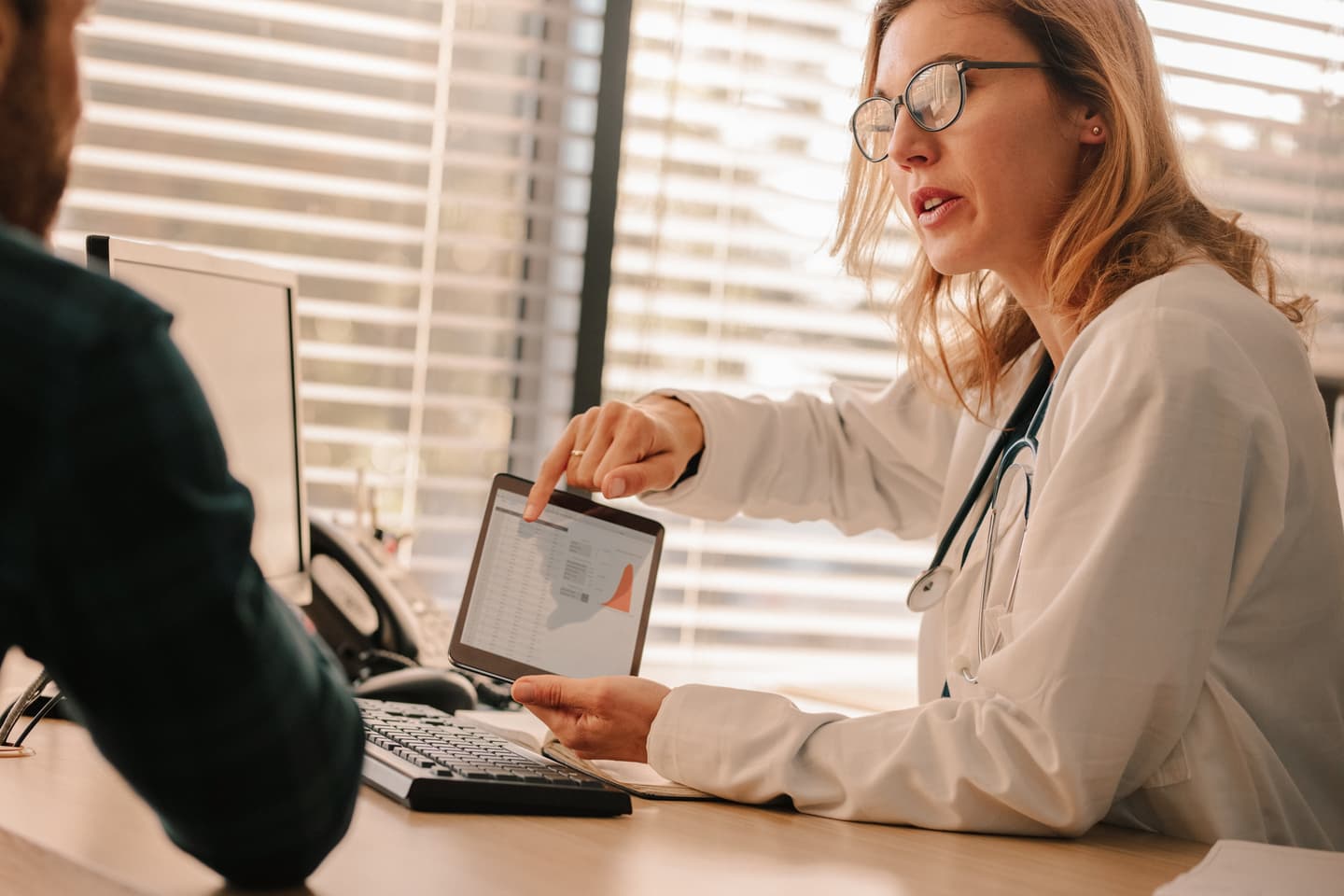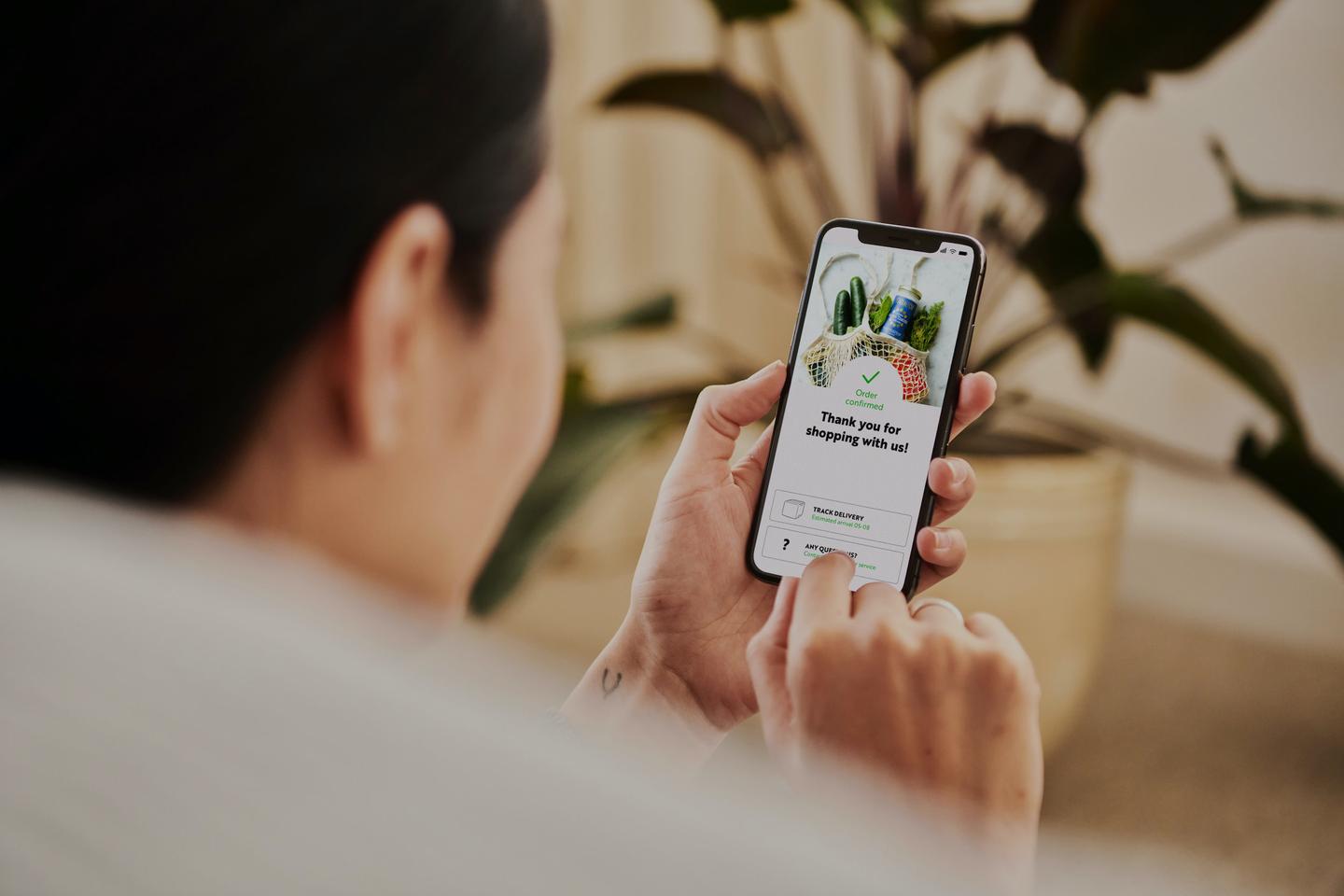How data-powered ecosystems can deliver for all: patients, partners and HCPs
Our recently published blogs explore the role of ecosystems, and how they can provide a blueprint for transformative and sustainable business growth. Initially, we explored the ecosystem concept and the importance of embracing a data-powered, customer-centric model. Then, to demonstrate the impact of ecosystems, we invented a fictitious company called JRS – a leading supplier of knee, hip and other joint replacement implants to an extensive network of private and public hospitals.

In order to stay relevant and competitive, JRS needs to transform itself by providing a full-service, API-driven digital platform which embraces the latest standards of connectivity and interoperability. Through this interoperable platform approach it enables a digital ecosystem that supports customers and healthcare practitioners across every stage of their joint replacement journey.
In this blog, we focus on two (fictional) partners’ in JRS’s ecosystem – FutureOps and Medicalendar.io. We explore how they might be helped to grow exponentially using JRS’s new business model, and why JRS’s new approach should work to their advantage.
FutureOps
FutureOps is a leading provider of digital high tech tools and equipment for operating theatres. Its goal is to help healthcare providers improve the efficiency of surgical treatment, while making it less expensive and invasive for patients. It provides digital tools and equipment for a wide range of procedures and is aware of JRS’s track record in joint replacement.
Until recently, FutureOps has viewed JRS simply as a trusted product supplier. But now that JRS has repositioned itself as a data-driven platform, there is potential for closer collaboration. The new-look JRS is a mine of information about patients’ pre-operative and post-operative experience. It also has a pool of data derived from thousands of knee transplant procedures that can be used to identify patterns based on lived experience.
FutureOps’ clients (hospitals and surgeons) have a pretty good track record on knee replacements, but the company knows that a meaningful percentage of procedures don't work. JRS’s data is generated by sensors that feedback information from replacement joints on a 24/7 basis. By leaning into this data, FutureOps can identify if there are repeat factors that occur in unsuccessful or partially successful outcomes.
What’s more, FutureOps can feed relevant insights from JRS into a ‘digital twin’ of the patient – an AI/machine learning generated doppelganger that is used to make surgical judgements before the real patient is wheeled into the operating theatre. The end result of this data-driven collaboration is that FutureOps, patients, surgeons and hospitals may all benefit from a higher success rate. Meanwhile, with its new API-driven data platform capability, the wider variety of services it offers all boasting the latest standards of interoperability, JRS can increase its share of the implants market. After all, hospitals, HCPs and partners such as FutureOps are keen to work with a company that can offer a one-stop-shop to solve a greater range of pain points in a way that is baked into their workflow.
Medicalendar.io
Medicalendar.io’s mission is to make the admin behind a patient’s treatment process as smooth as possible. Having started as a basic appointment booking service, it has been reinvented as a responsive scheduling tool that manages a patient’s treatment plan from first appointment to final sign-off. It aims to support the best outcome for patients, while reducing inefficiencies in care provision.
This, of course, is a complex and dynamic system that requires data inputs from the patient’s key points of contact (doctor’s surgery, hospital and consultant) and the various stakeholders, of which JRS and FutureOps are two. In practice, Medicalendar.io takes the form of an online dashboard that both the patient and their healthcare providers can access (with voice activation for those who find digital tech challenging). Diary dates and likely timeframes are entered into the patient’s profile and updated as landmarks are reached or unexpected events come along. If the patient is due to have an operation on a certain date, but is sick – this appointment is moved, stakeholders are informed and someone else may see their operation fast-tracked. If a backlog means that an operation is delayed, then proposed dates for post-operative physio are moved.
For JRS, there are supply chain benefits in knowing dates have changed. For HCPs, accurate scheduling means greater efficiency but also ensures that the patient is receiving personalized care.
Key considerations
It’s not too difficult to see how JRS, FutureOps and Medicalendar.io might benefit from this kind of mutually-beneficial ecosystem. But what kind of factors will come into play as they seek to get their plan off the ground?
Value-based healthcare is paramount: Ecosystems need to be a win-win for all stakeholders, however patient health outcomes must be the priority. In our example, the over-riding ambition of JRS’s ecosystem and of its participants, is to deliver seamless, responsive and effective patient care. It is not a technological cartel that sees the patient as an asset to be squeezed. If constructed carefully, JRS end users (patients) will receive the right treatment within an optimal timeframe and at an acceptable price and will live healthier lives. At the same time, various business benefits will flow out to the partners that made this possible.
Privacy is a potential obstacle: Banking customers have generally accepted interoperability in the banking sector as a benefit, with open banking driving faster and more personalised decision-making. In theory, healthcare is the same, though patients will probably need great reassurance before allowing sensitive information to be shared. Key to this will be convincing patients they retain ownership or control over their data. Ecosystem partners will have to demonstrate to patients that data-sharing is in their interest in line with European Health Data Space best practice guidelines.
Generosity should be a core value: The ecosystem model brings together companies that are experts in their field and helps all of them expand their business through a collaborative agenda. What’s more, an effective ecosystem will invariably open up previously unimagined business opportunities. Research shows that generous systems which (for example) share resources and information widely, deliver greater competitive advantage than those that don’t.
In this case, a combined pool of data in the JRS ecosystem could be used to build digital-first training programmes that draw on tools like VR/ASR and data visualisation. The bottom line is that the best business outcome for ecosystem participants generally comes when they share expertise and resources while respecting each other’s cultural and commercial strengths.
Ecosystems should be inclusive not exclusive: It’s important to respect the partners within your ecosystem – but that doesn't mean JRS needs to restrict itself to one set of alliances. For example, if JRS’s knee replacements are fitted with sensors, then the company is building up a mass of data about how its products are being used and where. Companies in sportswear, wearables, fitness and travel might all be unable to unlock insights based on this data.
 Christoph NützelHead of Technology and Data, Germany
Christoph NützelHead of Technology and Data, Germany



